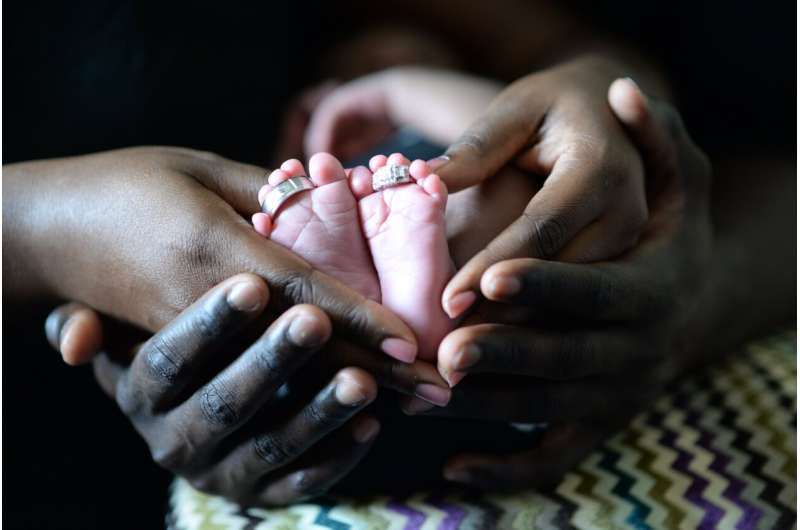Over-policing linked to higher odds of preterm birth


New research from the University of Minnesota School of Public Health (SPH) links the stress of living in an over-policed neighborhood with higher odds of preterm birth for both Black and white birthing people—but most severely for Black residents. Preterm birth, defined as birth before 37 weeks of gestation, raises the risk of long-term health problems for babies.
The research, led by Rachel Hardeman, Ph.D., MPH, associate professor and director of the SPH Center for Antiracism Research and Health Equity (CARHE), was published in JAMA Network Open. Hardeman is a national expert in racial reproductive health disparities, including the role of over-policing in Black birth disparities.
A growing body of research reveals the physiological harms of police encounters, particularly for Black people. This study adds to that research, showing how racist policing practices hurt birthing people and their babies.
“Racism is a fundamental cause of health inequity, which means we have to apply antiracism to institutions that affect the fundamentals of our lives and communities,” said Hardeman. “Our research focused on residents of Minneapolis and found that U.S.-born Black birthing people and their babies were hit the hardest by over-policing, which is a form of structural racism.”
Hardeman’s study team examined medical record data of 745 white, 121 U.S.-born Black, and 193 non–U.S.-born Black Minneapolis residents who gave birth to single babies at a large health system between Jan. 1 and Dec. 31, 2016. The researchers then looked at where the residents lived in Minneapolis and determined if they were in neighborhoods that had high police contact, defined as areas within the highest statistical quarter of police activity in the city.
The research found:
- In high police-contact neighborhoods, all birthing people had higher odds of preterm birth, indicating that the stress of over-policing is harmful regardless of race.
- White birthing people living in high police contact neighborhoods experienced a 90% higher chance of preterm birth compared to residents in low-contact areas.
- U.S.-born Black birthing people in high-contact areas experienced a 100% higher chance of preterm birth compared to residents in low-contact areas.
- Foreign-born Black birthing people in high-contact areas showed only a 10% higher chance for preterm birth. This is explained by what researchers call the “immigrant paradox,” which states that Black immigrants who didn’t grow up weathering structural racism have far better health outcomes than Black individuals who were born and raised in America.
- The researchers also found that Black neighborhoods are disproportionately over-policed compared to white neighborhoods.
If the cause of higher preterm birth rates among U.S. and non-U.S.-born Black birthing people was purely biological due to their race, both groups would have had similar results. Instead, the research shows that non-U.S.—born Black birthing people have far healthier pregnancies and babies than their U.S.-born counterparts, proving that the difference is whether or not they experienced long-term exposure to over-policing structural racism.
Source: Read Full Article